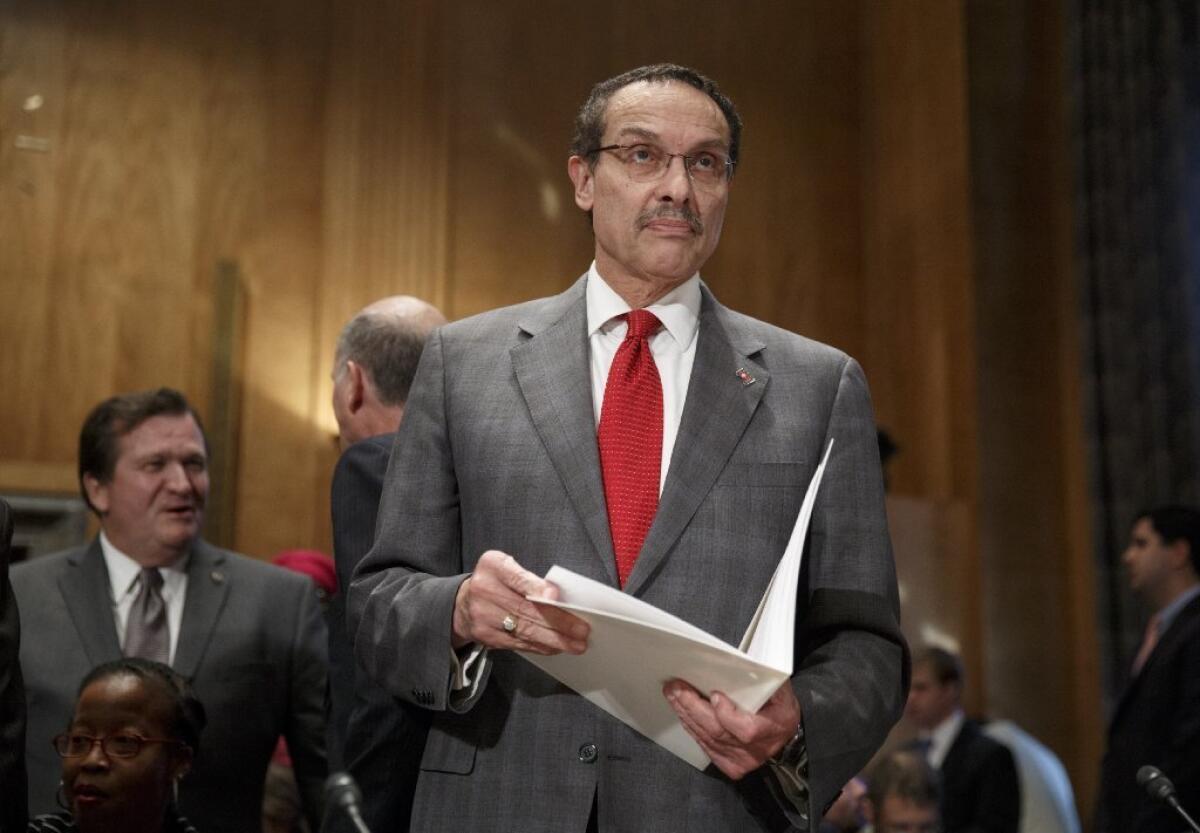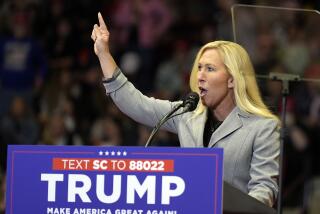Opinion: D.C. statehood: an appropriately lost cause

There isn’t a Committee of Lost Causes in the U.S. Senate. Too bad, because it would have been a more appropriate venue for a hearing on statehood for the District of Columbia than the panel that did examine the question Monday, the Homeland Security and Governmental Affairs Committee.
The committee heard witnesses on the desirability and constitutionality of the New Columbia Admission Act, which would convert D.C. – except for a tiny federal enclave containing key government buildings – into the state of New Columbia, complete with representation in the Senate and the House of Representatives. No longer would D.C. license plates have to bear the shameful slogan “Taxation Without Representation.”
This proposal is going nowhere, and only partly because congressional Republicans are loath to give Democrats two new seats in the Senate. (That’s an ignoble reason for opposing statehood; but jacking up Democratic representation is an equally ignoble argument for the idea.) There are also questions about whether the legislation is constitutional.
As a resident of the district (I work out of The Times’ Washington Bureau), I feel the pain of having no representation in Congress. I would have a voting representative in the House if Congress had approved a measure proposed a few years ago that would have enlarged the size of that body from 435 to 437 (D.C. would have received one seat, and the other new seat would have gone temporarily to Republican-leaning Utah).
That legislation also raised constitutional questions, but it reflected the fact that the House represents people. (So does the president, which is why D.C. has three votes in the Electoral College, thanks to the 23rd Amendment.) The Senate, on the other hand, is where states are represented – and represented equally, regardless of their populations.
Does D.C. deserve to be a state? Advocates of statehood note that “New Columbia” would have a population of 645,000, which is larger than the population of Vermont and Wyoming. But so what? Several cities have populations that large or larger (L.A.: 3.8 million; New York: 8.2 million; Chicago: 2.7 million). Should they be made states and given two senators?
To which statehood supports would reply: That’s unnecessary, because residents of L.A., New York and Chicago can vote for members of the U.S. Senate. But so could lots of current D.C. residents if land ceded by Maryland to help create the District of Columbia were returned, a process known as retrocession. Representation in the Senate and statehood are separate issues.
Although the debate over statehood for D.C. is conducted on a lofty plane, with abstract invocations of equality and fair representation, power politics are also involved. I mentioned the partisan context: Democrats would likely gain two senators if D.C. became a state. But the statehood debate also invokes racial politics. It has been the conventional wisdom that those two senators would be not only Democrats but also African Americans. (That assumption may be eroded by demographic trends in D.C.)
One can argue, of course, that the Senate, with its emphasis on states’ rights is an anachronism. Today Americans often move from state to state and the federal government exercises a pervasive influence undreamed of by the founders.
Moreover, with the decline of the states as meaningful and equal entities, it seems ever more unjust for large states and small states to have the same representation in the Senate. (If D.C. did become the state of New Columbia, its individual voters would pack a more powerful punch in the Senate than a voter in 48 other states.) But statehood for D.C. wouldn’t do away with those larger anomalies.
The fact that D.C. residents like me lack any voting representation in Congress is lamentable, but there are ways to address that problem other than making a state out of an area whose essential characteristic is that it’s not a state.
Follow Michael McGough on Twitter @MichaelMcGough3
More to Read
A cure for the common opinion
Get thought-provoking perspectives with our weekly newsletter.
You may occasionally receive promotional content from the Los Angeles Times.







